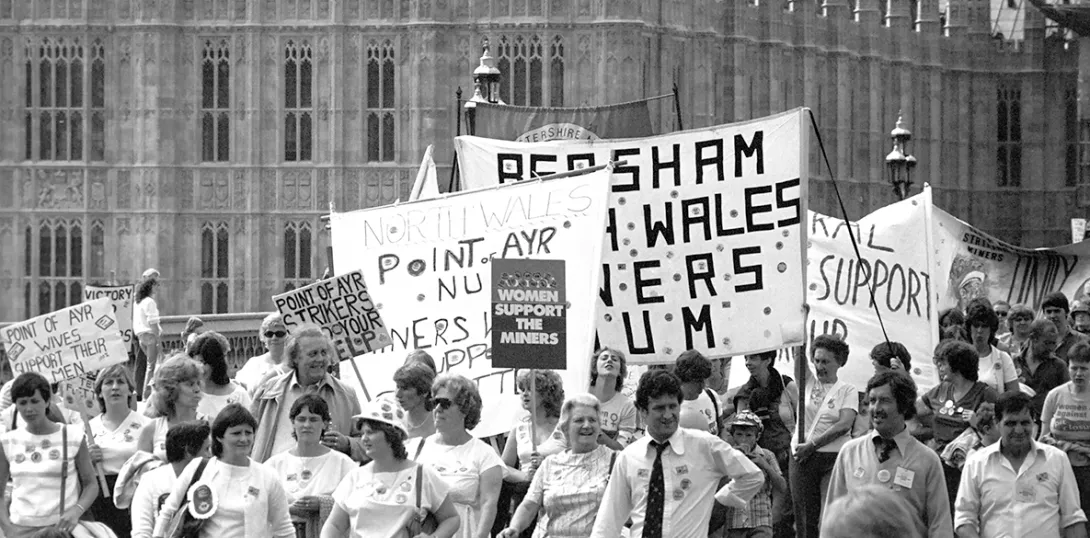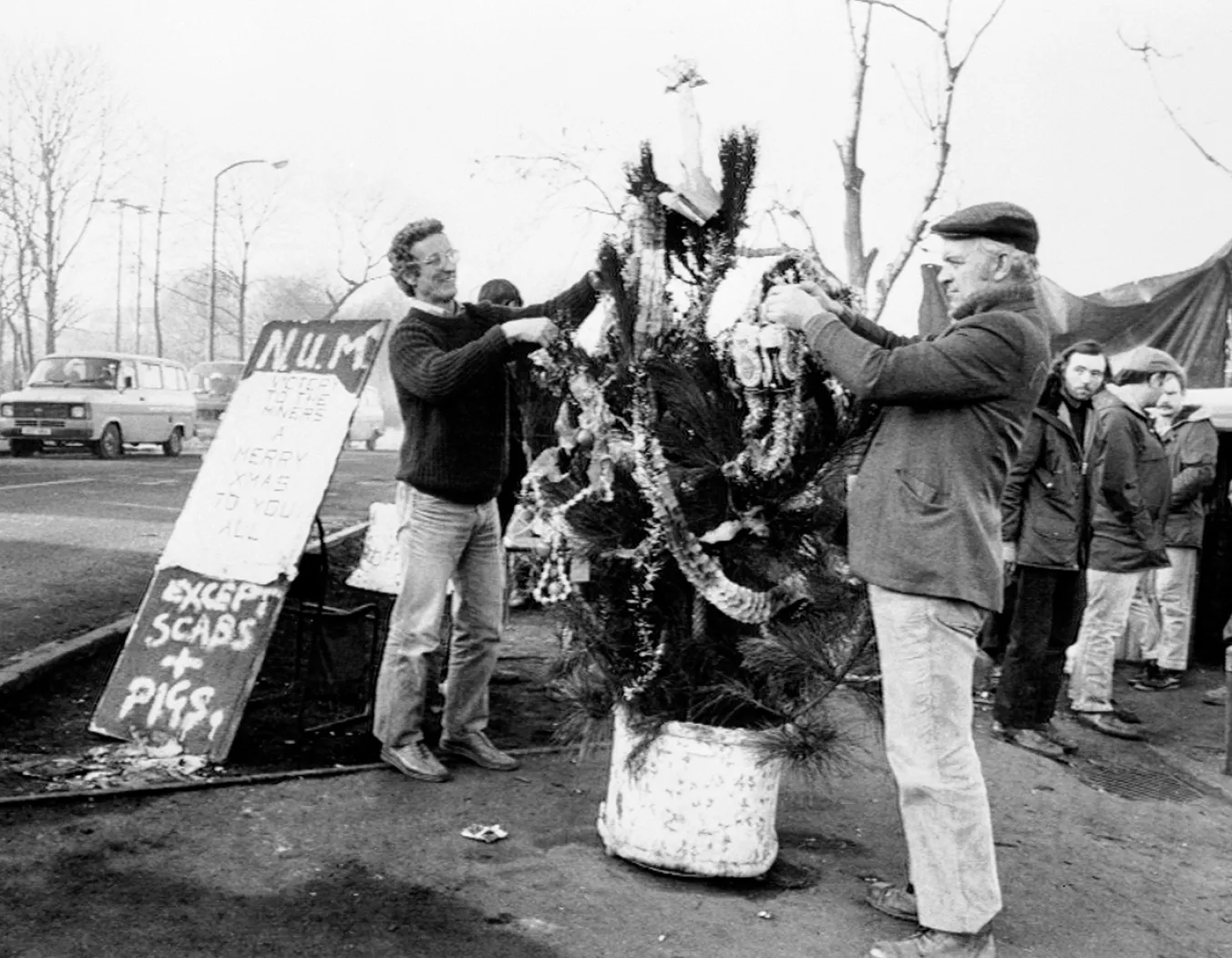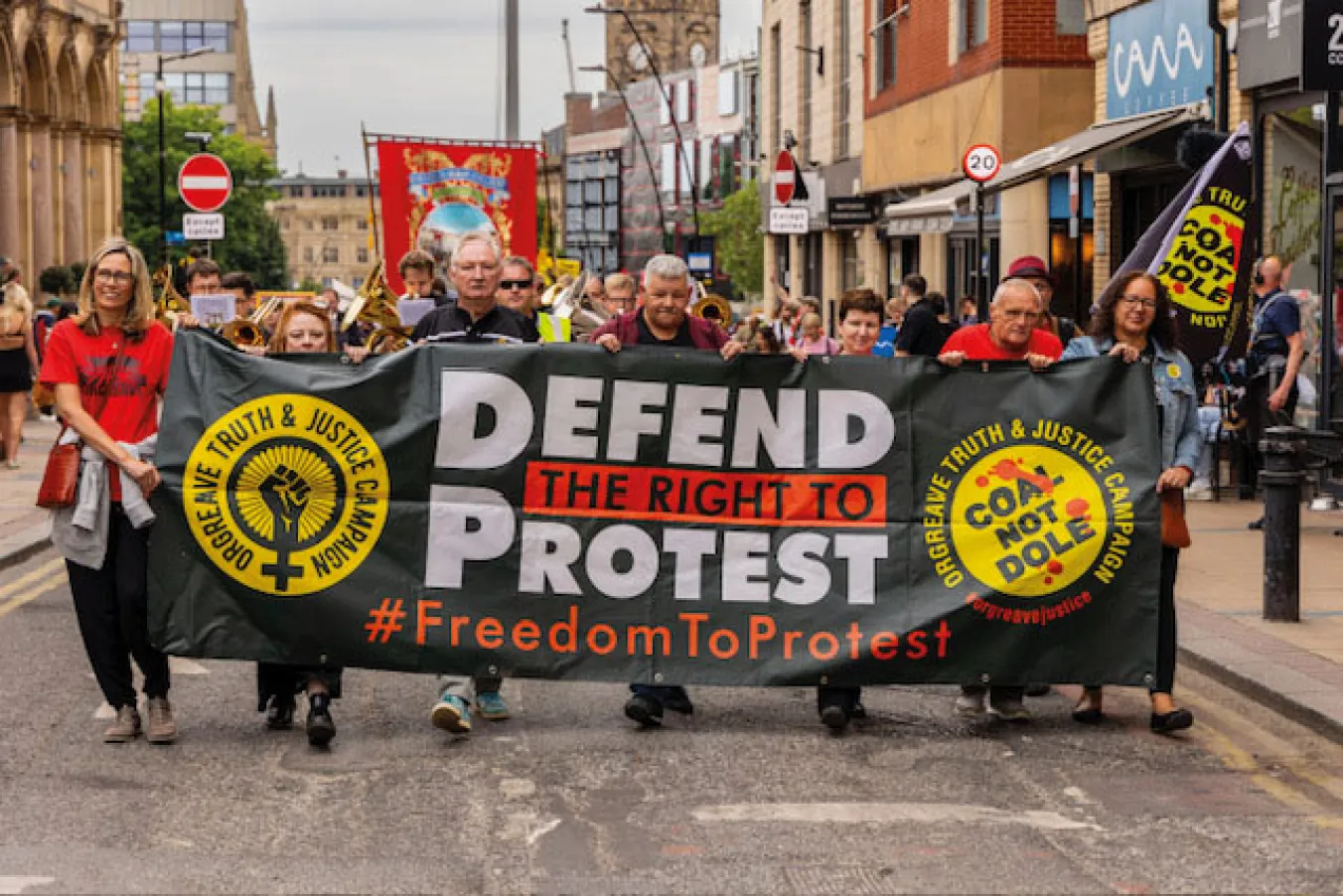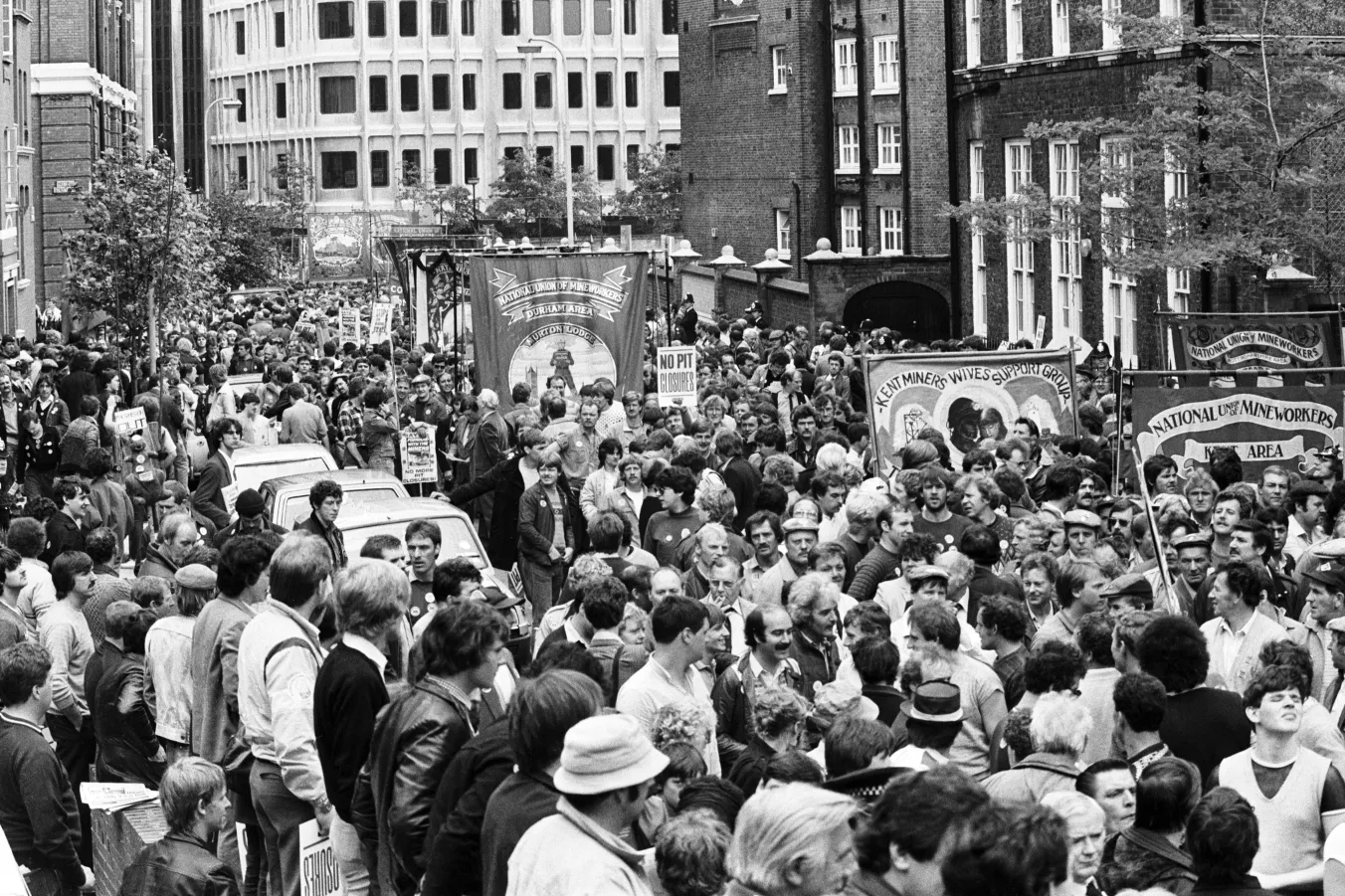
AS A CHILD of the ’60s growing up in Ashington, Northumberland, my life was defined by coal. The entire community owed its existence to the mining industry, the schools I attended, the leisure facilities I used, the doctors’ surgeries and hospitals were all built by the miners.
Forty years ago, in February 1984 I was a mining craft apprentice at Ellington Colliery, just a few miles north of my home town. Having recently turned 21, I enjoyed the lifestyle afforded to me by a vibrant mining community that worked hard and played hard. While rumours of industrial strife persisted, I was very much unaware of the turmoil that soon was to engulf the industry I worked in. The next year would put immense strain on coalmining families and communities and have far-reaching consequences.
When the strike reached the Northumberland coalfield, I had a decision to make. As an indentured apprentice we were exempt from taking part in the strike and told by the union to attend work. My dad, a strident supporter of the National Union of Mineworkers, for the first time in his working life, advised against following the union’s line. He told me I should not be going to work; it was the best advice I have ever received.

















